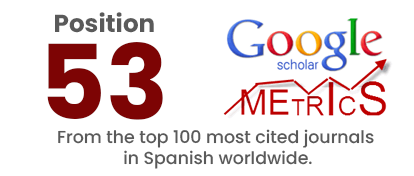Cultural Development Of The Participants Of Tatar Business Language Courses
DOI:
https://doi.org/10.36097/rsan.v0i34.1181Keywords:
speech culture, business communication, level learning, speech competence, oral speechAbstract
This paper deals with the problem of the Tatar business speech development in state and municipal employees in the short-term courses under the program of "Business Tatar language". For the implementation of this project, programs have been developed and approved in accordance with the requirements of level-grade education in the Tatar language. In the process of studying the Tatar language, students of the courses practically master both oral and written speech, language features of business communication in the Tatar language, and deepen their linguistic competence. This is the relevance of the materials presented in the article. According to the program of these courses, students are divided into groups depending on the level of practical knowledge of the Tatar language. The specifics of each level are the topics for business communication, speech and language materials, which together serve to develop the communicative competence of students. The study of such topics as “Business communication, establishing business contacts, business etiquette”, “State and municipal authorities: types, structure, activity”, “Telephone negotiations”, “Holding meetings and negotiations within the organization”, “Official business style of speech”, “Organizational and administrative documentation”, “Business letter in Tatar language”, “Official duties”, “Business trips”, aimed at digesting aspects of the Tatar speech culture in oral and written business communication. The approbation of the developed system of teaching business Tatar language is carried out on the basis of the Institute of Philology and Intercultural Communication of the Kazan Federal University. It allows students to form a culture of Tatar business speech, taking into account their fields of activity. This is due to the fact that the application of the Tatar language in the sphere of official business activity of the highest state and other structures in the Republic of Tatarstan is given special attention.
Downloads
References
State program "Preservation, study and development of state languages in the Republic of Tatarstan and other languages in the Republic of Tatarstan for 2014–2020" [website] // URL: http://prav.tatarstan.ru (Access date 17/05/2019).
Timerhanov, A.A. (2002). The language of business papers in the modern Tatar language. Abstract of the thesis for a Candidate Degree in Philological Sciences. - Kazan, - 25 p.
Ilsoyar, A. & Sadykova, Geleenya, H. (2015). Gilazetdinova and Venera N. Yapparova. “Speech is Silver but Silence is Gold (Once Again to the Issue of What Russian Silence Means).” The Social Sciences, 10: 1935-1939.
Gabdrakhmanova, F., Maksimov, N., & Zamaletdinov, R. (2017). Speaking The Speech Through Abstract And Concrete Concepts. Modern Journal of Language Teaching Methods, 7(10): 64-69.
Alsu, A., Radif, Z., Gulnara, Z., & Almas, U. (2018). Code-Switching and Linguistic Identity. Modern Journal of Language Teaching Methods, 8(11): 124-132,.
Gulshat, N., Galimova, Guzel A., & Nabiullina, M.O. (2017). Speech Stereotypes in the Linguistic Ethics of Tatar and Turkish Ethnocultures. QUID-INVESTIGACION QUID, sp. is. 1, Medellín-Colombia, 2587-2591.
Ismagilova Aida, M., Kuzmina Khalisa, K.H., & Khadieva Gulfiya, K. (2017). Peculiarities of Intercultural Communication in Texts of Tatar Educational Electronic Media: The Problem of Calculation. REVISTA PUBLICANDO, 4(13): 365-374.
Fatkhullova, K.S., Yusupova, A.S.h., & Denmukhametova, E.N. (2012). Let's speak Tatar. - Kazan: Tatar book publishing house, - 311 p.
Shlepnev, D. (2002). Compilation and translation of official business correspondence: Textbook. - Nizhny Novgorod: NGLU, - 208 p.
Sibgaeva, F.R. (2016). Rules of spelling and punctuation in Tatar business writing (Manual for employees working in the field of state and municipal service). - Kazan, - 43 p.


















